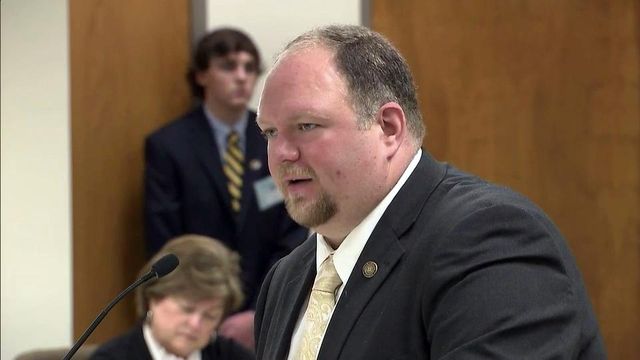Senators to mull over end of health regulation law
A Senate committee debated, but did not vote on, a bill that would end the certificate of need process in North Carolina. The state's CON law restricts when hospitals and other health care providers can but large new pieces of equipment or open new facilities.
Posted — Updated"You will find no state that has a more restrictive certificate of need law than North Carolina does," said Sen. Ralph Hise, R-Mitchell, the bill's primary backer.
"It limits patient choice and makes surgery more expensive," said Dr. Charles Ford, a Boone ear-nose-throat specialist.
His patients, Ford said, can often save thousands of dollars on a minor surgery, such as installing ear drainage tubes in a young child, by traveling somewhere like Hickory, where the procedure can be performed in an outpatient surgery center rather than a hospital.
"Thousands of dollars are wasted with every surgery I perform," he said
But opponents of the repeal, including hospice centers and hospitals, say the measure keeps the market stable and ensures small and rural hospitals can fulfill their functions as full-time health providers.
"We don't have the luxury of focusing on what the insurance companies are asking to do. We don't have the luxury of just focusing on just what Medicare or Medicaid require of hospitals," said Cody Hand, a lobbyist for the North Carolina Hospitals Association. "We have the mission, the desire and the goal to serve every community that we're in."
CON repeal would be "short-sighted," Hand said, noting that hospitals are already dealing with massive regulatory changes, including the federal Affordable Care Act and North Carolina's own Medicaid reform effort.
Tuesday's meeting ended without a committee vote, despite having time to further debate the bill if they wanted to. The CON bill is always the subject of intense lobbying. Hospitals are often a community's biggest employer, and doctor groups are frequently active advocates and campaign donors, making both potent political players.
"We have been having really good conversations with every member of the Senate," Hand said after the meeting.
Committee leaders would say only that they need to discuss the bill with fellow Republicans.
"I think we're going to digest what we've heard today and see where we are," said Sen. Louis Pate, R-Wayne, who along with Hise and Sen. Tommy Tucker, R-Union, co-chair the Health Care Committee.
Pate said the next step would be to report on the committee meeting to the Senate Republican Caucus. The caucus meets behind closed doors and can vet legislation through both a political and policy lens without scrutiny from the public.
"I think it's important to run through and see what the objections are there," Hise said, noting that even a small group of senators opposed to a major bill could derail it late in the session.
Related Topics
• Credits
Copyright 2024 by Capitol Broadcasting Company. All rights reserved. This material may not be published, broadcast, rewritten or redistributed.





